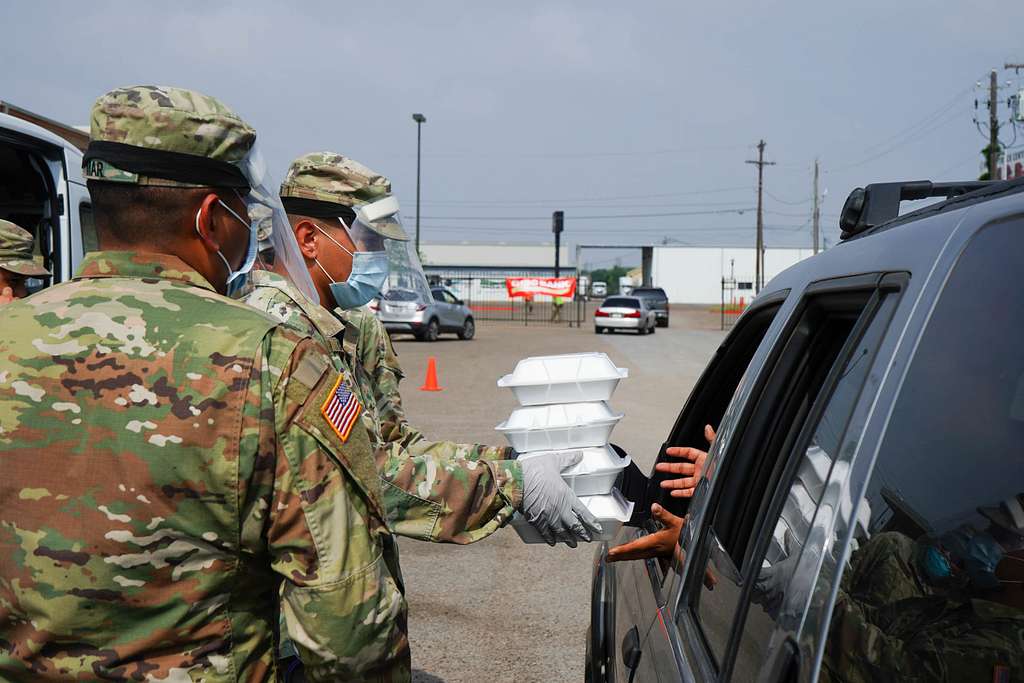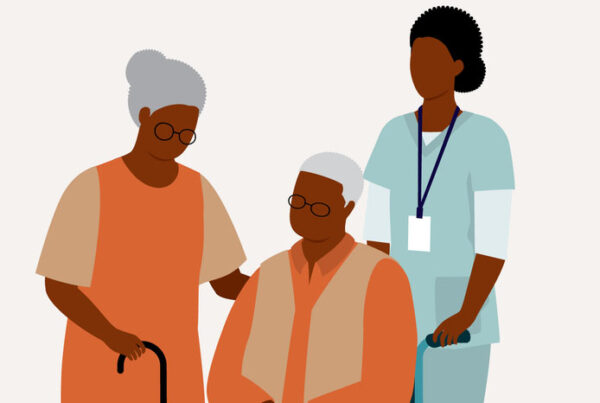By Bob Bertsch
Like many of the issues that impact military and civilian families, food security is complex. There are multiple factors that affect the issue, including economic, social, environmental, and political factors. Interrelated issues like poverty, healthcare, and climate change make food security even more complex.
Complex issues can only be addressed from multiple perspectives and by a wide range of people and organizations. Obach and their collaborators write, “Building networks allows for sharing information, knowledge, and resources (Laforge et al., 2017), as well as identifying social problems within communities, determining practical solutions, and providing important services (Provan et al., 2005), especially when those services are not reliably provided by the government. Forming networks of individuals and organizations in local or regional food systems also can be important to improving local, state, or federal policy” (2023).
For those of us interested in reducing food insecurity among military families, that means we need to engage with people and organizations working on the issue from inside and outside of government, on and off military installations, and at all levels of the socio-ecological model: individual, interpersonal, organizational, community and public policy.
Communicating, engaging, and collaborating effectively with people and organizations from such diverse perspectives and approaches isn’t easy. It takes practice.
The Practicing Connection initiative provides a place for that practice.
Practicing Connection offers a podcast, monthly newsletter, workshops, and webinars that can help you develop the skills and connections needed to better support military and civilian families, and address complex issues by:
- Helping you show up differently in your current teams and organizations.
- Sharing examples of collaborations working to improve career, social, financial, health, and community well-being.
- Providing alternative practices and structures you can use to bring people together and guidance on having collaborative meetings, navigating conflict, and building relationships.
- Discussing how we can shift our focus upstream by building community capacity to address the root causes of an issue.
Together, we explore the skills and practices that can prepare us to work together and grow personally and professionally. If we can apply these ideas, skills, and practices to the issue of food security for military families, here’s what it might look like.
- Each of us knows that addressing complex issues like food security requires us to seek out and build relationships with each other.
- Using practices for bringing people together, we engage military families to learn about their needs, any barriers to nutrition security, and the assets they have used to become more food secure.
- Using what we’ve learned about building relationships, we seek out opportunities to work with others to address food security.
- Inspired by the collaboration stories we’ve heard, we connect with others to learn how food security is being addressed in the community, on and off installation.
- Recognizing the need to build community capacity to address food security, we approach installation leadership about engaging in food security as a community issue.
The complex issue of food security can only be addressed from multiple perspectives and by a wide range of people and organizations on installations and in communities. We invite you to join the Practicing Connection community to hear from practitioners, build your collaboration skills, and connect with others who want to address this important issue.
Join us at oneop.org/practicingconnection
References
Laforge, J. M. L., Anderson, C. R., & McLachlan, S. M. (2017). Governments, grassroots, and the struggle for local food systems: containing, coopting, contesting, and collaborating. Agriculture and Human Values, 34, 663–681. https://doi.org/10.1007/s10460-016-9765-5
Obach, R., Schusler, T., Durkin, S., Vaca, P., & Sheikh, M. (2023). Connectivity and racial equity in responding to COVID-19 impacts in the Chicago regional food system. Journal of Agriculture, Food Systems, and Community Development, 12(2), 305–320. https://doi.org/10.5304/jafscd.2023.122.010
Provan, K. G., Veazie, M. A., Staten, L. K., Teufel-Shone, N. I. (2005). The use of network analysis to strengthen community partnerships. Public Administration Review, 65 (5), 603–613.https://doi.org/10.1111/j.1540-6210.2005.00487.x
Photo Source: Defense Visual Information Distribution Service













